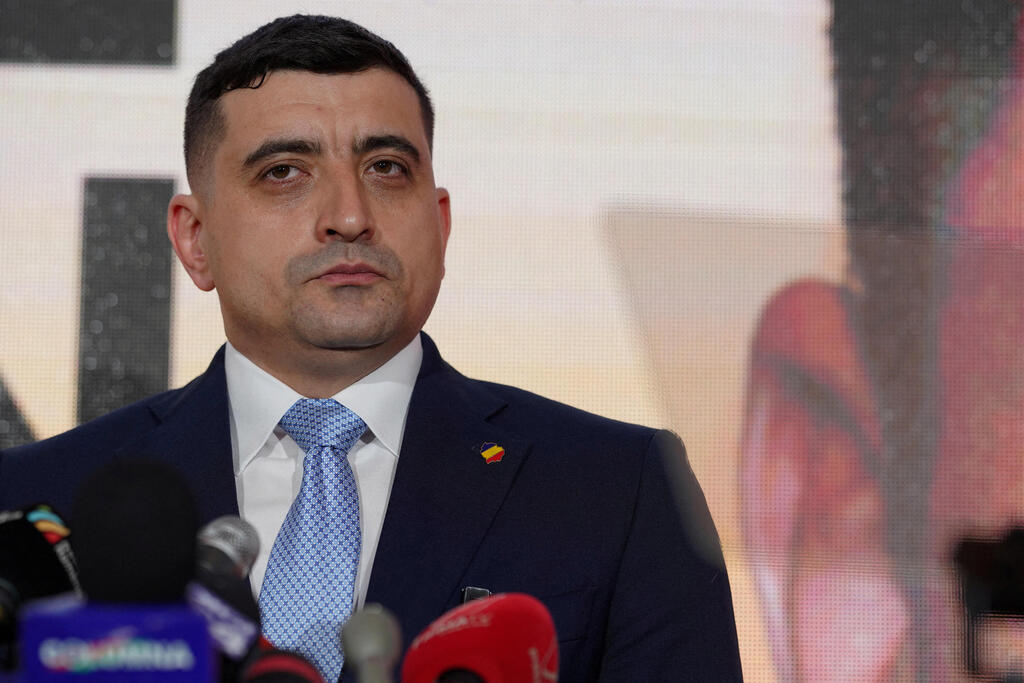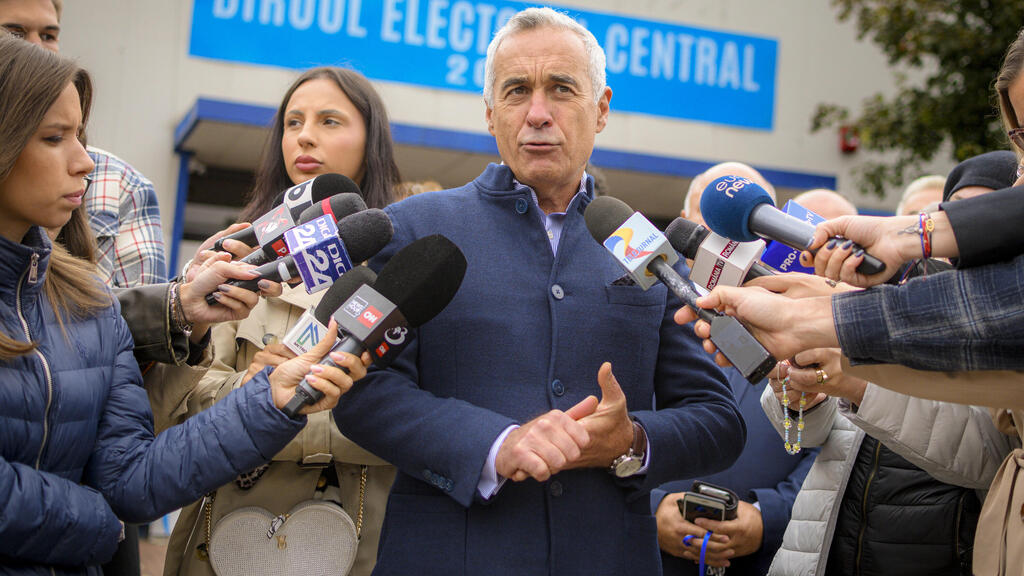On August 28, 2023, the Israeli ambassador to Romania made an unexpected move—he met with George Simion, the leader of the Alliance for the Union of Romanians (AUR), an extremist party with a well-documented history of antisemitism, Holocaust denial, and glorification of Romanian fascist leaders. Yad Vashem, Israel’s primary Holocaust memorial institution, formally expressed its disapproval of this meeting to the Israeli Ministry of Foreign Affairs.
Antisemitism in Romania is deeply rooted in its history. In the 1937 elections—the last free elections before Romania fell under decades of fascist and communist rule—one in four voters supported heavily antisemitic candidates. The fascist Iron Guard, notorious for its violent extremism, carried out pogroms and assassinations, including the brutal murders of Jews.
Ion Antonescu, Romania’s fascist military dictator during World War II, was responsible for the deportation and mass murder of at least 280,000 Jews and over 10,000 Roma, as well as the persecution of Protestant churches. Under the communist regime, Romania denied the Holocaust took place within its borders until 2003, when the government officially acknowledged this historical truth following the findings of an international commission led by Nobel Prize laureate Elie Wiesel.
Yet antisemitism remains embedded in Romanian society. Nationwide surveys consistently show that around 30% of Romanians believe Jews “deserved their fate” for crucifying Jesus, and nearly 50% consider war criminal Ion Antonescu a national hero. Today, three extremist Romanian parties collectively garner close to 30% of the electorate.
Post-communist extremist politicians have worked to minimize Romania’s role in the Holocaust, none more so than Claudiu Târziu, until earlier this week co-president of AUR and the party’s second-in-command. He has dismissed the Holocaust in Romania as a minor historical event, insulted the LGBTQ+ community, and actively promoted the legacy of the Iron Guard through his publication Rost.
4 View gallery


Israeli Ambassador to Romania Reuven Azar meets far-right politician George Simion
(Photo: AUR)
During his meeting with the Israeli ambassador, Simion attempted to distance AUR from its antisemitic past. He acknowledged the Holocaust in Romania’s history and even recognized, in a limited way, Antonescu’s role in it. Simion condemned antisemitism and the cult of Romanian fascist leaders. However, he simultaneously denied that antisemitism exists in Romania today, avoided endorsing Holocaust education in Romanian high schools, and refused to support the International Holocaust Remembrance Alliance (IHRA) definition of antisemitism.
Simion’s words proved to be empty. In September 2023, just weeks after meeting the Israeli ambassador, AUR’s third-highest-ranking member, Sorin Lavric, delivered a speech in the Romanian parliament praising an Iron Guard member and depicting him as a model of national sacrifice. Lavric also falsely claimed that the Iron Guard did not participate in the Holocaust. When confronted, Simion downplayed these statements, falsely asserting that there was no evidence linking the individual in question to antisemitic acts or the murder of Jews.
Simion’s alliance-building efforts further confirm his party’s extremist roots. In October 2023 and again in June 2024, he pledged allegiance to the Greater Romania Party, previously led by the virulently antisemitic Corneliu Vadim Tudor. Simion praised Tudor’s rhetoric, declaring that “everything Vadim Tudor said was true.”
4 View gallery


Protests break out in Romania after election result are nulified
(Photo: Andreea Alexandru / AP)
Perhaps the most blatant proof of Simion’s duplicity is his support for Călin Georgescu, a former presidential candidate and avowed admirer of the Iron Guard and Ion Antonescu, whom he calls moral and national heroes. Georgescu has openly stated that he left the Club of Rome to avoid becoming “Judaized.” He has also made derogatory comments, claiming that under President Trump, “MAGA became MIGA (Make Israel Great Again),” and that Vice President Vance is a “virus.”
Get the Ynetnews app on your smartphone: Google Play: https://bit.ly/4eJ37pE | Apple App Store: https://bit.ly/3ZL7iNv
Another key extremist figure in Romania is Diana Șoșoacă, leader of the far-right SOS Romania party. Șoșoacă is a vocal supporter of Vladimir Putin and has made numerous antisemitic and pro-Iron Guard statements in parliament. In November 2022 and again in February 2024, she praised Iron Guard regional leader and poet Radu Gyr, who incited the January 1941 rebellion that led to the Bucharest pogrom and the massacre of 120 Jews. In both January and July 2024, Șoșoacă publicly saluted the former leader of the Iron Guard, using the organization’s infamous slogan: “Long live the Legion and the Captain.” She ranted about “the power of the kikes” and declared that Jews should “return to Israel, which isn’t even their land but belongs to Palestine.”
Her most shocking display came on May 14, 2024, when the Romanian parliament convened to declare the date a national holiday in honor of Israel. Standing in opposition, Șoșoacă performed the Nazi salute, shouted, “We support Palestine, you committed genocide there,” and again glorified the Iron Guard. She then turned to Jewish attendees and yelled, “Go home to your country.”
This situation could have been prevented. On one hand, Romania’s mainstream political class—whether sincerely or for diplomatic reasons—presents itself as pro-Israel and pro-American. Romania’s legislation on combating antisemitism and Holocaust denial is among the strongest in Europe. It was, in fact, Romania that originally proposed the IHRA definition of antisemitism, which has since been endorsed by the United States.
However, Romania’s political class has largely ignored the growing threat of extremism, and its justice system has been slow to act against those who promote antisemitic ideologies. This complacency has allowed extremist parties to flourish.
 Romanian Ambassador to Israel Radu Ioanid Photo: Courtesy
Romanian Ambassador to Israel Radu Ioanid Photo: Courtesy Romanian Ambassador to the United States Andrei Muraru Photo: Courtesy
Romanian Ambassador to the United States Andrei Muraru Photo: CourtesyDuring the 19th century, Benjamin Peixotto, appointed U.S. Consul to Romania by President Ulysses S. Grant, actively monitored antisemitism and supported Jewish communities facing persecution. The United States has long played a role in protecting Romanian Jews—from pressuring Romania to grant equal rights after World War II to demanding an end to their destruction during the Holocaust. Even under the communist regime, the U.S. repeatedly pushed Romania to allow Jewish emigration. After the fall of communism, the U.S. Congress took a leading role in combating antisemitism and Holocaust denial in Romania.
For many years, the United States kept a close watch on Romanian antisemitism. Given the alarming rise in extremist rhetoric and political influence, it is time to do so again.
Ignoring these developments risks emboldening those who seek to rewrite history, glorify fascists, and incite further hatred. If Romania does not take decisive action, the consequences will extend beyond its borders.
- Andrei Muraru is the Ambassador of Romania to the United States, and Radu Ioanid is the Ambassador of Romania to Israel.



